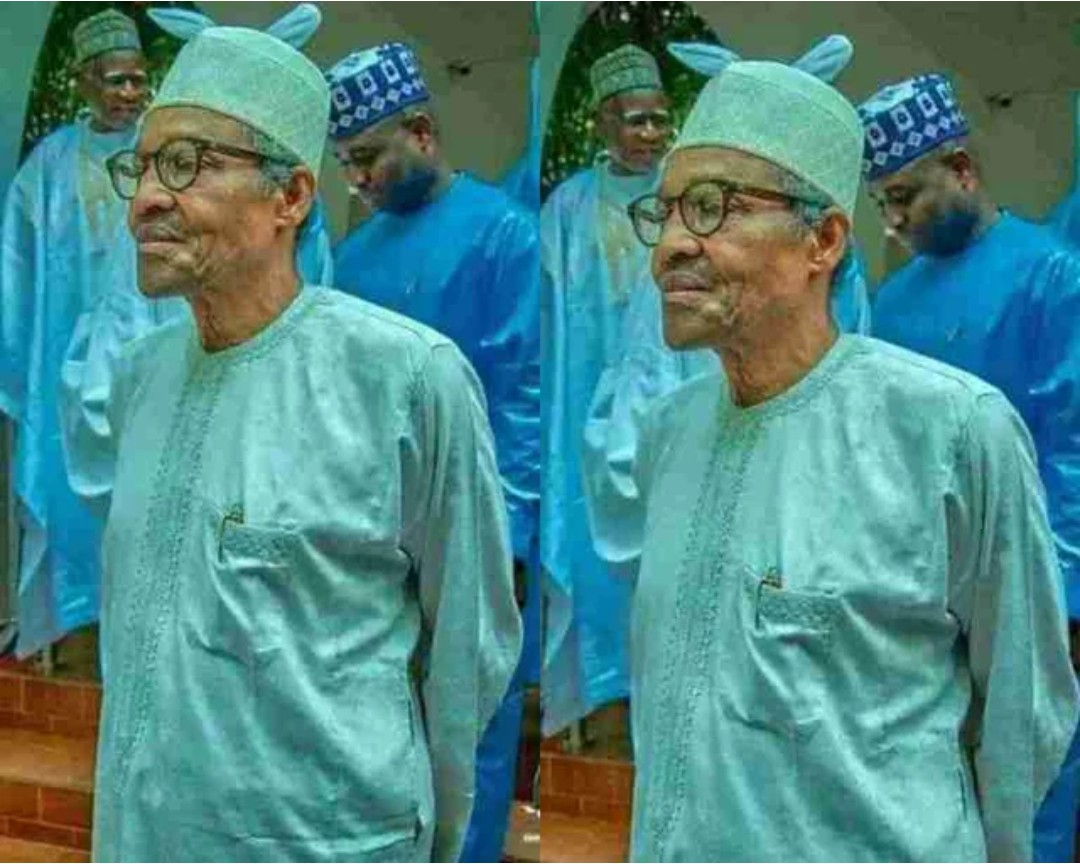
A recent picture of the former president,
Muhammadu Buhari, looking frail,
has sparked rumors of his ill health.
People are wondering what the problem
could be, as they see him looking so weak, barely 5 months after leaving Aso Rock.
Nevertheless, netizens remember the level of bondage, death, hunger, and deprivation that this man’s incompetence, religious bigotry, and ethnic jingoism have brought upon Nigerians.”
Despite the speculation surrounding former President Buhari’s health, it is essential to approach this topic with caution and empathy. While a picture can be indicative of one’s physical well-being, it cannot alone provide a comprehensive understanding of their overall health.
However, the concerns expressed by some individuals are not solely based on physical appearance but also on the impact of his administration. Many Nigerians remember the challenging times they experienced during his tenure, marked by insecurity, economic downturns, and social unrest. Some individuals argue that the country suffered due to what they perceive as his incompetence, religious biases, and ethnic divisions.
Critics claim that Buhari’s administration failed to effectively address various issues plaguing Nigeria, such as terrorism, corruption, and economic inequalities. They argue that under his leadership, the nation witnessed heightened tensions along religious and ethnic lines, hindering social cohesion and national progress. Skepticism arose as to whether his policies were truly inclusive and aimed at fostering unity among diverse Nigerian communities.
While it is essential to acknowledge the critical voices, it is also crucial to remember that people can hold differing opinions about leaders and their policies. Some individuals may support Buhari’s efforts to combat corruption and restore law and order, believing that these actions were vital steps towards Nigeria’s development. Others, however, may feel that these measures were insufficient or were not executed correctly, leading to limited progress.
Amidst the discourse surrounding Buhari’s health and legacy, it is important for Nigerians to engage in constructive conversations about the country’s future. Focusing on addressing the challenges that persist, regardless of the previous administration’s actions, can redirect the nation’s collective energy towards tackling issues such as security, economic growth, and social equality.
Ultimately, as Nigerians evaluate their leaders, they should strive to separate personal opinions from factual information and prioritize the well-being and progress of their society. Discussion and dialogue can help guide the nation towards a brighter future, where the concerns of all citizens are taken into account and inclusive policies are implemented.
